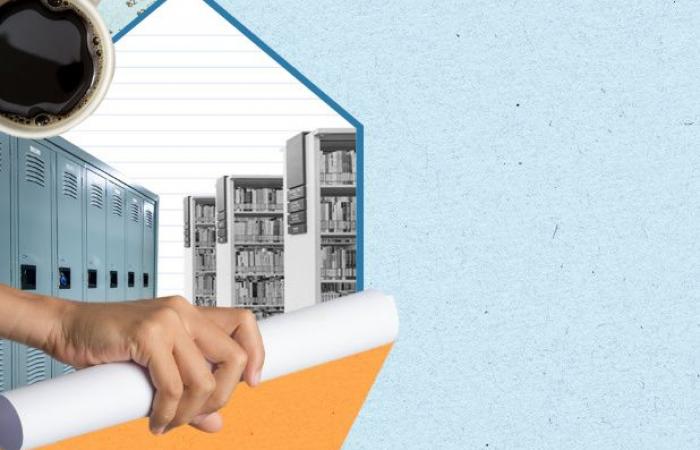Winter is here. It’s cold and demotivation is starting to show on people’s faces. “What’s the point of being at school?” Is it worth it? Why not enter the job market straight away? » As the visits to professional schools and CEGEPs continue, it is always interesting to remember what a diploma is worth in 2024.
Published at 7:00 a.m.
In Quebec, school is compulsory until the end of the school year when you turn 16. Subsequently, it is possible to go directly into the job market, enroll in a vocational school or continue college studies.
The 2022 statistics on the educational level of Quebecers aged 25 to 64 are encouraging. There are now 37.2% of Quebecers who hold a university degree (bachelor’s, master’s or doctorate), 21% who hold a college diploma (DEC) and 17% who hold a professional studies diploma ( DEP) or a certificate of professional specialization (ASP). The percentage of Quebecers without a diploma, which was 11% in 2019, decreased slightly to stand at 9.7% in 2022.
In class, even though I constantly talk about the social benefits linked to professions and the happiness at work that cannot be bought, the questions that come up most often are the following: “How do I make a lot of money?” and “Is it worth pursuing an education financially?” “. The short answer: “yes”!
We see that annual salaries tend to increase according to the level of education attained.
In 2022, an employee without any particular qualifications earned, on average, $36,800 per year. People in this situation often have precarious jobs that do not allow them to live well beyond the poverty line. A college graduate earned $52,600 per year, while a university graduate could expect to earn $75,700 per year.
One student said that if he went into the job market right away, he would start accumulating money before others and could start investing in his future. He’s not wrong, but again, the 2022 stats speak for themselves. An individual who does not have a high school diploma will spend 48 years on the job market and can expect to earn, at the end of their working life, $1,766,400. An individual who decides to study at university will have to invest a good amount of money to pay for their tuition fees and related costs associated with studies. He will also have to sacrifice full-time paid employment for the duration of his studies. Despite everything, a bachelor’s degree holder will earn, at the end of their working life, $3,255,100 on average, even though they will have only spent 43 years on the job market. That’s almost a million and a half more than an individual without any particular qualifications!
Of course, there are major differences in remuneration depending on the profession performed.
Some professional jobs are paid more than many jobs carried out by academics. Qualification is only one of the factors that influence salary, along with performance, duties and responsibilities, the level of risk associated with the profession, geographic distance, etc. And no diploma can guarantee getting a job…
In recent years, the job market has been rather favorable to teenagers. We were in the middle of a pandemic and businesses were desperate for workers. However, more and more students have reported to me that they have submitted their applications to several local businesses without getting a call, a situation that was unthinkable just a few years ago. In short, we must remember that pursuing studies is often a wise investment to ensure your financial future.






